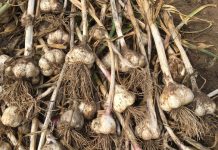Have you ever wondered about why Election Day is the Tuesday after the first Monday in November? I have, so thought I’d follow up and see what could be found on this issue.
Have you ever wondered about why Election Day is the Tuesday after the first Monday in November? I have, so thought I’d follow up and see what could be found on this issue.
Throughout much of America’s history, the country was for the most part an agrarian society—that is, it depended on agriculture for its primary means of support and maintenance. Certainly, that was the case Alpine in the late 1800’s and the early 1900’s. Old photos show the importance of farming in early Alpine as groups of farmers gathered to discuss issues and take actions which would help to make them profitable—and, in fact, help them survive. Many of these issues were political in nature.
Law makers in the nation’s capital took into account that November was most likely the best month for farmers and rural workers to take the time needed to travel to the polls. Spring was planting time and summer was the time for working the fields and tending the crops. Harvest took place in early fall; however, in most parts of the nation the weather was still mild enough to permit travel over unimproved roads in early November.
Since most residents of rural America had to travel a significant distance to the county seat in order to vote, Monday was not considered reasonable since many people would need to begin to travel on Sunday. Because of church services and Sunday worship, this would have been a conflict.
One of Alpine’s pioneers, F. B. Walker, reported in an article he wrote in 1898, that the trip from San Diego to Alpine could be made, “by a charming staging trip of eleven miles over a good road and behind fast horses, the whole trip being made in four hours’ time, the fare from San Diego to Alpine being $1.25.” We think of travel from Alpine to downtown San Diego in terms of minutes—for the pioneers, this was truly a trek.
All these reasons for the choice of November make sense when we look back; however, why, then, the Tuesday after the first Monday? Lawmakers wanted to prevent Election Day from falling on the first of November for two reasons. First, November first is All Saints Day—a day of worship for many Americans. The second reason was that many merchants traditionally did their books from the preceding month on the first of the month. It appears Congressional leaders were concerned that the economic success or failure of the previous month might prove an undue influence on the vote.
The photo that accompanies this article shows a group, including some of Alpine’s most remembered farmers, at a meeting held at Mr. Stead’s home in Jamul on July 17, 1918. In Beatrice LaForce’s book, Alpine—History of a Mountain Settlement, Mrs. LaForce identified the men in the photo as (from left): Robert Ralston, Assistant Director U. C. Agricultural Extension; Lawrence Wilbur, Mr. Stead, Joe Foss, Harry Weinland, County Farm Adviser; Professor Miller, U. C.; Unidentified; Neil Galloway.
Whatever the reasons for Election Day being held on the Tuesday following the first Monday in November, it is a wonderful thing that each one of us is given this undeniable liberty of having a voice in our country’s future.
Carol Walker and her husband Paul lived in Alpine for 19 years. Carol is the webmaster and newsletter editor for the Alpine Historical Society. She can be reached at cwalker@alpinehistory.org or 619-467-7766.













